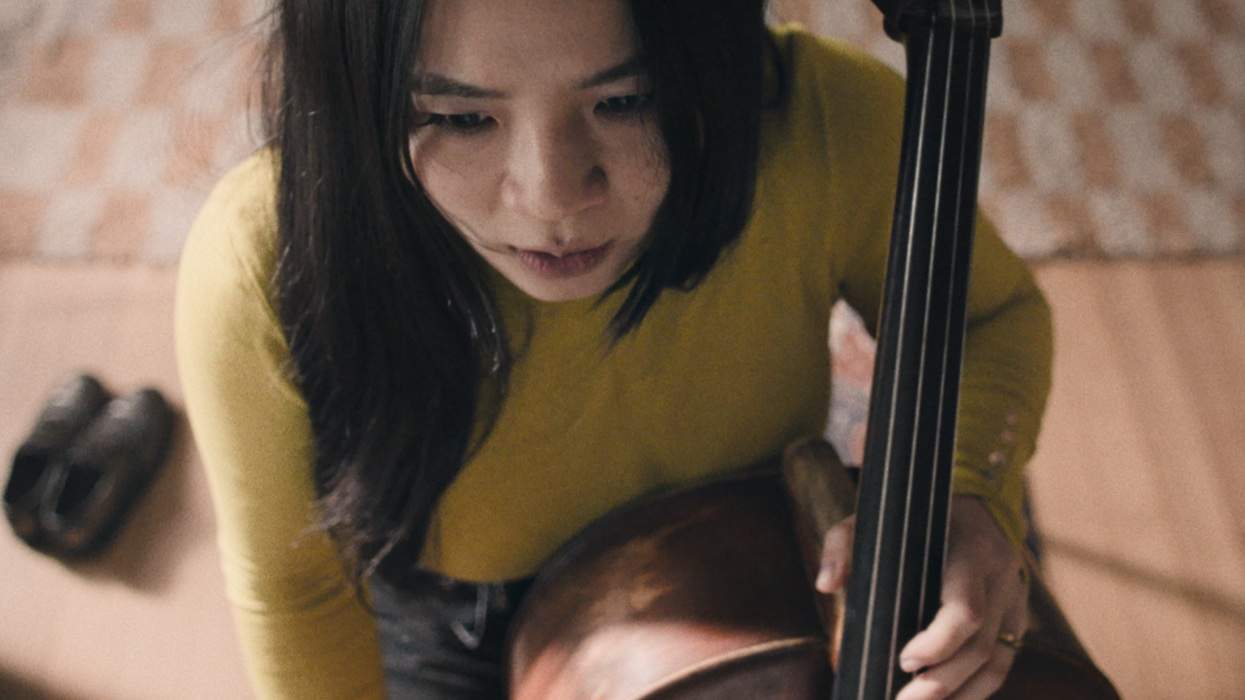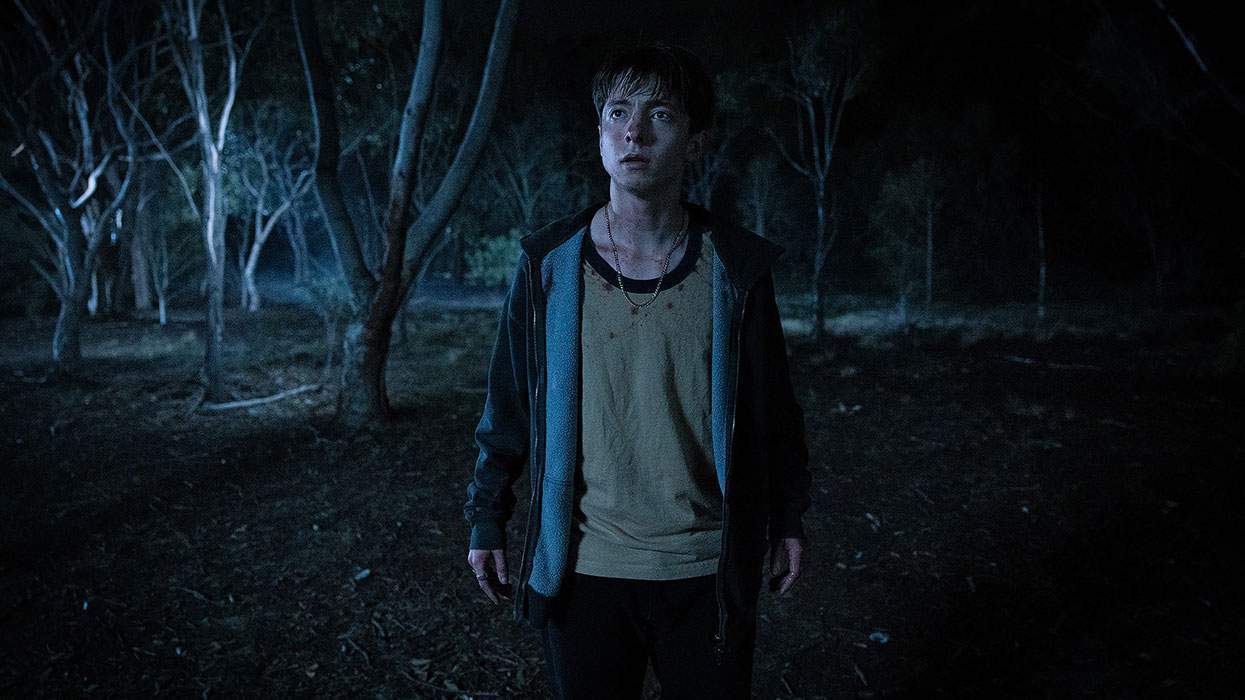Last month, the White House made LGBT history when it hosted screenings of The Danish Girl and Amazon's Transparent. In addition to viewings of these acclaimed productions, several luminaries attached to them, including Transparent's out showrunner Jill Soloway and star Jeffrey Tambor, as well as The Danish Girl director Tom Hooper, were invited to speak on a panel discussion about transgender representation in media.
In attendance, but not invited to speak on this panel, was Mya Taylor, the star of Tangerine, an indie darling about trans women of color who are sex workers in Los Angeles. The 24-year-old actress, who used to be a sex worker herself, recalls how "heartbreaking" it was to sit silently in the audience. Onstage, there was an empty chair next to the award-winning speakers, and she saw in that unused piece of furniture a symbol of what many others have seen in retrospect: a missed opportunity.
"If I was on the panel, I really could have really told everybody what it was really like to live as a true trans person," laments Taylor, who attests that her publicist had advocated "really, really hard" to place her on the panel, to no avail. "I would talk about the issues that I faced personally... It's from my own experience, so I can really speak from my heart and tell people how it really is."
While Hooper did praise Tangerine and Taylor's performance during the event -- a gesture that Taylor calls "very sweet" -- it is indeed heartbreaking to hear of an empty seat at the table in the White House, in a year when more than 20 trans women of color have been killed in the United States and HIV rates among this group are skyrocketing.
But the omission is not surprising. Both The Danish Girl and Transparent benefit from the spotlight of their cisgender (nontrans) stars, who garnered media attention and awards acclaim for their portrayal of trans women. They also had far greater resources at their disposal -- Tangerine was shot on an iPhone 5s camera with a budget of $100,000, which pales in comparison to The Danish Girl's $15 million and Transparent's deep-pocketed network, Amazon Video.
But Taylor and her co-star Kitana Kiki Rodriguez have helped turned what might have remained a well-reviewed but little-recognized indie movie into a movement. In a time when movie stars throw tantrums when asked about sexuality, these trans actresses are speaking frankly about their past experiences as sex workers in order to help move the needle. And they're not afraid to address those who criticize Tangerine for its portrayal of trans women employed in the world's oldest profession.
"I would say it's realistic," Rodriguez countered in The Hollywood Reporter. "And if you don't like it, then when you see it you're going to want to change it."
"I hope that they see that it's real," Taylor tells The Advocate, regarding how the film increases visibility of sex workers and struggles like drug addiction and limited economic opportunities. "It's not just something that's being swept up under the rug."
Throughout the promotional tour for Tangerine -- which, by the way, is now available on DVD, Blu-ray, and Netflix -- Taylor has made a point to speak out against the stigma that society imposes on sex work. She herself faced employment discrimination in her search to find a job that wasn't criminalized, and she points out the hypocrisy of those who place judgment on anyone who is doing work they need to do in order to survive.
"It's not their business," she says. "Let's say if you were transgender or gay or bisexual or Muslim or whatever you want to be, it's not my business to come and judge you. Because, first of all, what you're doing isn't paying any of my bills."
"If you don't have anything nice to say about somebody, then don't say it at all," she concludes. It's a mantra she lives by, refusing to say anything negative about a certain film about the Stonewall Riots released this year, which was criticized for whitewashing LGBT history. "I don't have anything to say about it, because it's not my film," she says.
However, when asked if these critics would be pleased with her upcoming short film, Happy Birthday, Marsha!, in which she portrays the Stonewall pioneer Marsha P. Johnson, Taylor laughs. "Of course they'll be pleased with my film! Because I'm Mya Taylor."
She also wouldn't speak ill of a certain entertainment magazine that only included white cisgender actresses on a cover that highlighted Academy Award frontrunners, and defended its act by proclaiming: "The awful truth is that there are no minority actresses in genuine contention for an Oscar this year."
In fact, she paid it no mind. "They're not the ones who's handing me the Oscar... so, it doesn't really phase me," Taylor says.
The Washington Post dubbed Tangerine the year's "most improbable Oscar campaign," but a golden statuette in Taylor's hand is certainly not impossible. ("I'd probably pass out," she admits, if an Academy Awards announcer were to call her name as the winner.) The film was a hit at the Sundance Film Festival, and enthusiasm for it has only grown since being picked up for distribution by Magnolia Pictures. Taylor recently became the first trans woman to ever win a Gotham Award, competing in the Breakthrough Performance category alongside Rodriguez. Both actresses were also nominated for Spirit Awards alongside Oscar frontrunners like Cate Blanchett (Carol) and Brie Larson (Room).
There are other reasons to be hopeful. Just last week, The Hollywood Reporter announced that Caitlyn Jenner had joined Tangerine's Oscar campaign. The transgender reality star is set to screen the film for Academy members in early January, and she will back Taylor as a best supporting actress hopeful, which is bound to raise her visibility. A recent weekly ranking of Oscar contenders from the entertainment magazine also listed Taylor as number 12 in this category, just behind Anomalisa's Jennifer Jason Leigh and The Clouds of Sils Maria's Kristen Stewart.
"I get so many awards!" exclaims Taylor, who was also recently honored by the group Color in Common at the Los Angeles LGBT Center. Not too long ago, she had gone to that very same L.A. resource center to seek housing and "to pretty much get myself on track." There, as a relative unknown in the entertainment industry, she had also met Tangerine's director Sean Baker, who was looking for a cast and a story to tell. And the rest is herstory.
While acclaim from independent film festivals and LGBT nonprofits is stupendous, Taylor doesn't downplay the significance of what a nomination from the Oscars might mean, not only for herself, but for the LGBT community.
"First, I feel like it's breaking down doors to let other trans women in. So that's one of the things right there," she says. "But, it's a big plus for me and my career, to say, 'You know what, I've made it. And if I can make it, then you can make it.'"
"I can't give you too much information with how I feel about the Oscar campaign, because I can only be excited," she adds. "What else can I say? What else is there?"
But Taylor also recognizes that the fight for representation goes beyond being in front of the camera. As Viola Davis said in her Emmy Award acceptance speech earlier this year, "You cannot win an Emmy for roles that are simply not there."
This struggle involves working for the rights of more than one group. As Maureen Dowd noted in her New York Times expose "The Women of Hollywood Speak Out," sexism is alive and well in Tinseltown, citing statistics that only "1.9 percent of the top 100 films are helmed by women." Female representation among cinematographers, producers, and editors is also dismal.
The absence of women in these positions is hurting visibility across the board. Women are likelier to staff more diverse writer's rooms than men, which impacts the characters that are created and the people who are cast to play them. Although the director and writer of Tangerine is a man, Taylor admires women like Jill Soloway who create worlds of opportunities for marginalized people on shows like Transparent, which has been praised for hiring trans people and their allies at every level of operation. There is even a link between Tangerine and Transparent -- Jay Duplass is a producer on the former and an actor on the latter.
Thus, it's easy for Taylor to see how extending opportunities for women like Soloway in Hollywood is a cause that every LGBT person should be espousing.
"I feel like they should care, because... these are the people who actually give us a chance and actually care about us," Taylor says. "Women like [Jill]? They really help. They really care about bringing new talent, and they're not really scared about what people are gonna say. They just want to give people opportunities."
So why should, say, a white, gay, cisgender man see a film like Tangerine? Well, gay men also know the feeling of not having a seat at the table, as evidenced by the surfeit of out people who star in big-budget films or win Academy Awards. Moreover, this year's federal government raids and shutdown of Rentboy.com, which predominantly served the needs of men who have sex with men, show that sex workers and their struggles can be found in every community.
But beyond these issues, Tangerine is ultimately a story about two friends who overcome obstacles together. And who can't relate to that? In fact, it may be one of the most human stories of the year. That the friends happen to be transgender sex workers searching for a cheating pimp is just icing on the cake.
"It's really funny, you know. It's like a love story. But it's a friendship love story," Taylor concludes. "It's very sweet."















Charlie Kirk DID say stoning gay people was the 'perfect law' — and these other heinous quotes
These are some of his worst comments about LGBTQ+ people made by Charlie Kirk.